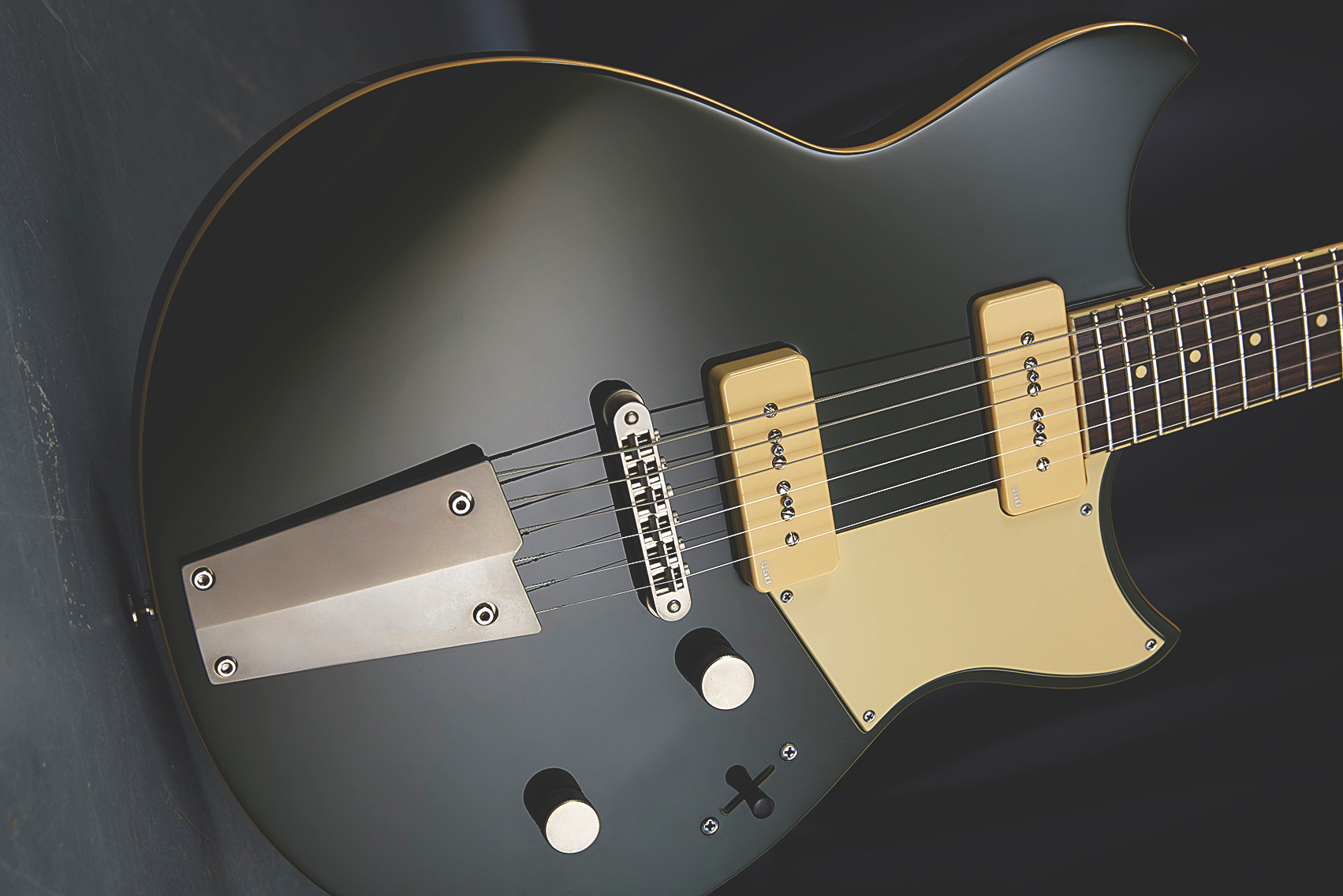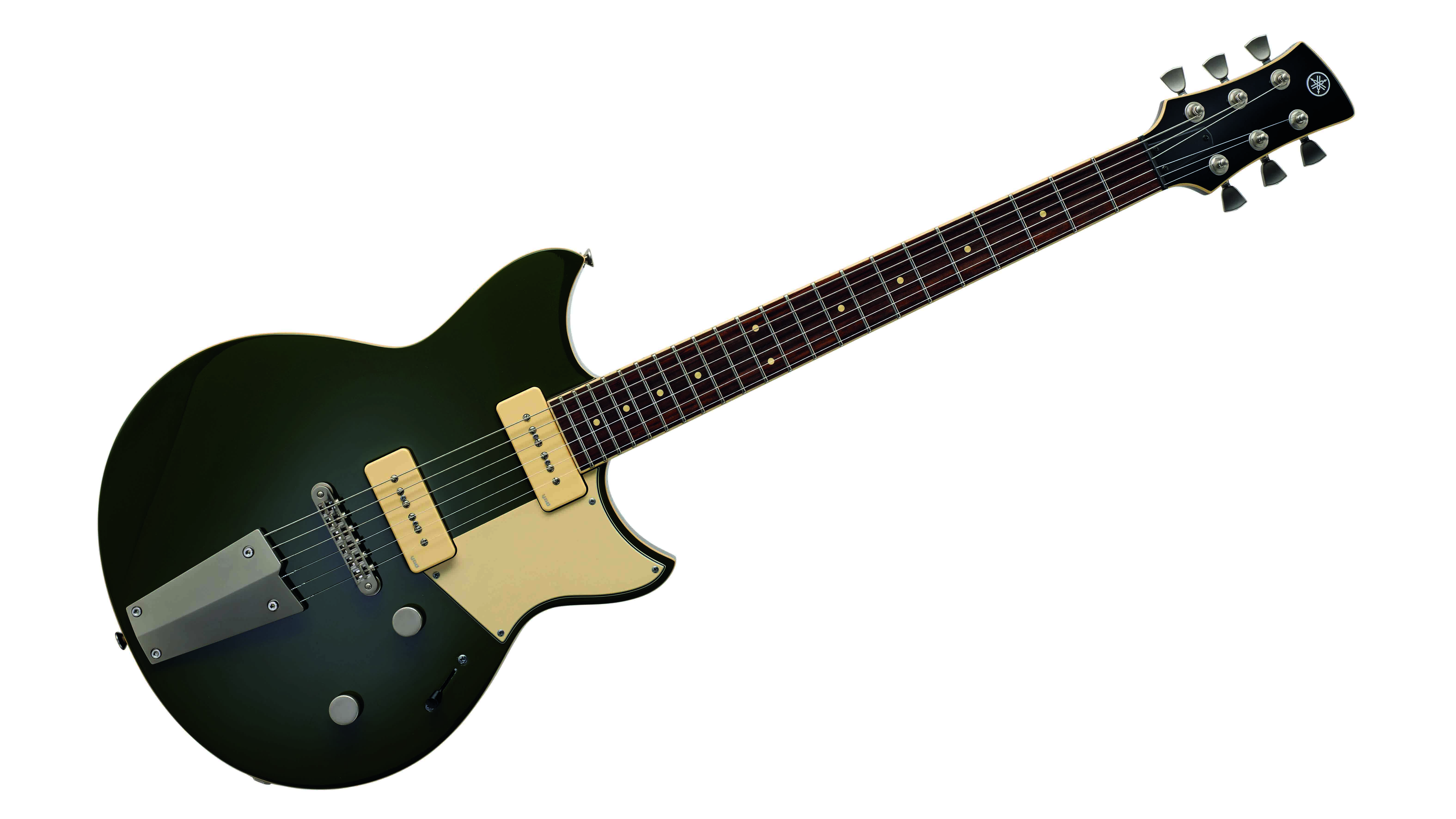MusicRadar Verdict
All in all, it’s a very classy act.
Pros
- +
Beautiful build. Old-school P-90 tones. Dry Switch versatility. Crisp playability
Cons
- -
Fairly weighty. The contemporary look won't be for everyone.
MusicRadar's got your back
The 502T was pretty much the original design that kick-started the Revstar range.
With the same shape as the 320, it swaps to all-mahogany construction (with a thin 5mm maple cap), adds belly and ribcage contours, a crisply bound top edge, a subtly deeper profile neck with bound dot-inlaid fingerboard, bigger frets and matching binding.
Most visually different, however, is the aluminium tailpiece, part of design theme that draws on a different part of Yamaha’s massive corporate output - the old-school cool of its Café Racer motorbikes. Placed behind a satin nickel tune-o-matic bridge, the tailpiece is height adjustable, and even works as a pretty stiff pitch-rising vibrato. Oh, and it looks pretty cool, right?

Well, that dark Bowden Green colour - named after the address of the original-concept design team in south London - might be a bit Marmite, but on stage (and in our photos) it looks virtually black.
The 502T and its sibling, the 502 (without the tailpiece and with a hand-rubbed satin top and headface), both use Yamaha-designed soapbar P-90 single coils with a medium-hot output, and like all the models, have a simple three-way selector switch, master volume and tone.
Pull up the tone control, however, and you voice that Dry Switch - basically a passive high-pass filter that thins out the sound a little. It adds surprising versatility to the biting-hot single-coil sound of the soapbars and easily kicks out a classic, punkier rock tonality or just-as-cool, old-school jazzy, bluesy soulful pop tones.
Want all the hottest music and gear news, reviews, deals, features and more, direct to your inbox? Sign up here.
Dave Burrluck is one of the world’s most experienced guitar journalists, who started writing back in the '80s for International Musician and Recording World, co-founded The Guitar Magazine and has been the Gear Reviews Editor of Guitarist magazine for the past two decades. Along the way, Dave has been the sole author of The PRS Guitar Book and The Player's Guide to Guitar Maintenance as well as contributing to numerous other books on the electric guitar. Dave is an active gigging and recording musician and still finds time to make, repair and mod guitars, not least for Guitarist’s The Mod Squad.

